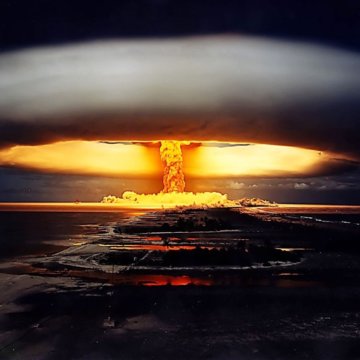- About
- Topics
- Story
- In-Depth
- Picks
- Opinion
- News
- Donate
- Signup for our newsletterOur Editors' Best Picks.Send
Read, Debate: Engage.
The Nobel Prize Committee has awarded this year’s Peace Prize to the International Campaign to Abolish Nuclear Weapons (ICAN), a coalition of campaigners from over 100 countries that works towards achieving a total ban on nuclear weapons.
In a time when global concern over nuclear war is at its highest level for decades, the Oslo-based committee is sending an important message to leaders in Washington and Pyongyang.
The prize recognises ICAN’s effort in drawing attention to the disastrous consequences of this kind of weapon. The organisation played a key role in the negotiations that led to the United Nations signing an historic Treaty on the Prohibition of Nuclear Weapons last June. However, the world’s nine biggest nuclear powers: the US, Russia, France, the UK, China, India, Pakistan, Israel and North Korea, boycotted the treaty. It's now hoped that this year’s Nobel Peace Prize could help pressurise countries who haven´t signed the treaty, with the next step involving the nuclear-armed states.
Because of today's increasingly high risks, as the fallout between the US and North Korea escalates and with American president Donald Trump threatening to abandon the nuclear deal reached with Iran, the prize's award is timely. However, tensions have not stopped rising: in a period of just twenty months, Kim Jong-un has released ten mid-range ballistic missiles and overseen three nuclear tests. The White House's response could not be less conciliatory with Trump promising "fire and fury never seen before in the world."
If leaders of nuclear nations continue clinging to the outdated idea that such weapons provide security, it is crucial that citizens increase their fight to assert an opposing view: that aggressive foreign policy jeopardises a country’s security and can lead to consequences of unspeakable proportions.
It is therefore clear, that nuclear nations cannot be expected to assume the role of peace makers. Pressure from civil society, enhancing social awareness and increased media pressure must be used to prevent nuclear proliferation spiralling out of control. ICAN activists work through these means and their effort today is more important than ever.
